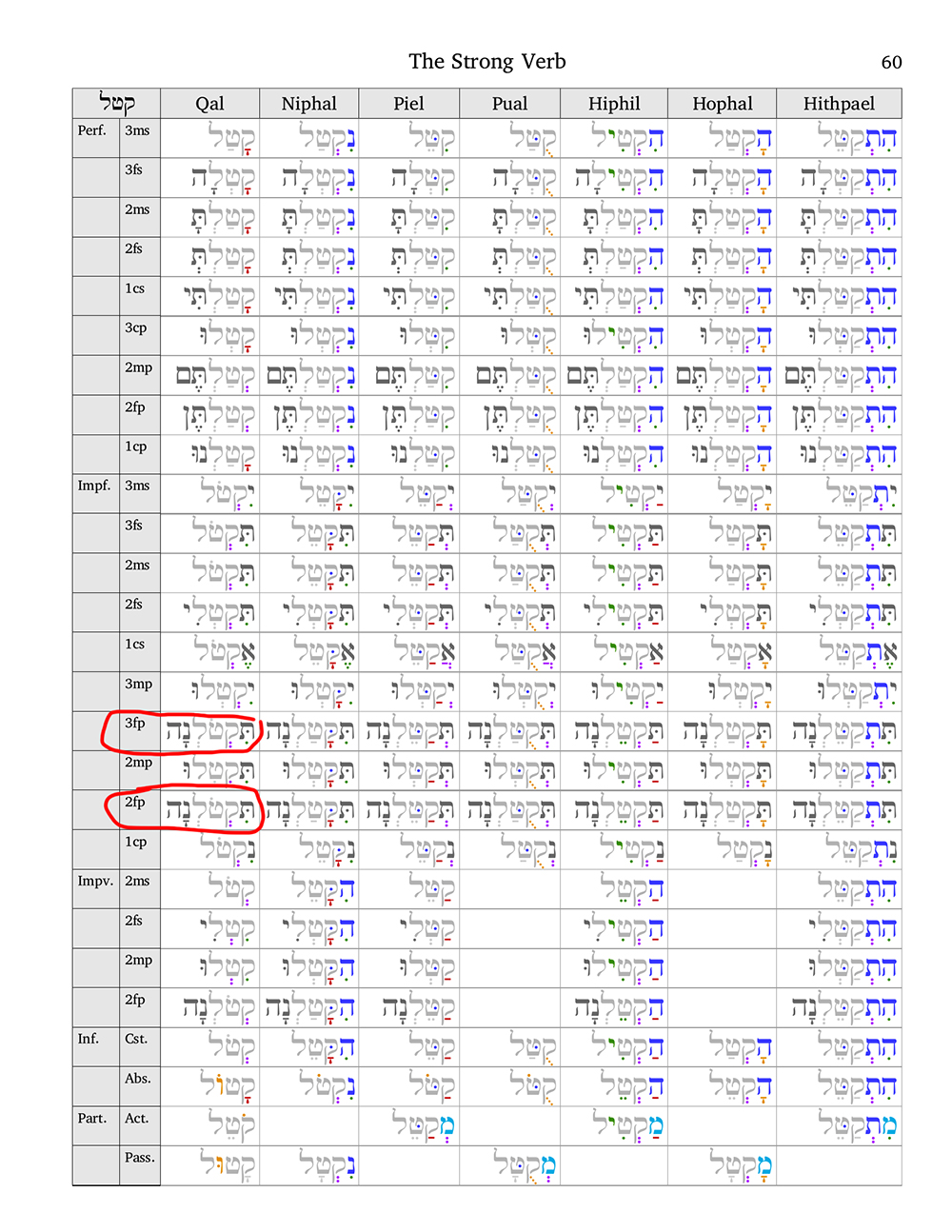ו ל אדם אמר כי שמעת ל קול אשתך ו תאכל מן ה עץ אשר צויתיך ל אמר לא תאכל ממנו ארורה ה אדמה ב עבורך ב עצבון תאכלנה כל ימי חייך
And he has spoken to the Man, “Because you have heard the voice of the woman of yourself and you are eating of the tree, straightly I have charged you to speak: ‘She is not eating from himself. She who is cursed is the Ground [of Adam] in him who is crossed of yourself. Within the lamenting one they are eating, all the days of your living ones,
Genesis 3:17 RBT
Hebrew תאכל she is eating
In Hebrew, the incomplete/imperfect tense conjugations for the second person masculine singular and the third person feminine singular forms of verbs often appear identical, both written and pronounced. Therefore, “תאכל” (ta’akhal) could represent either “you (masculine singular) eats” or “she eats” depending on the context.
Strong’s #5668, עבוּר abur.
If the word “עָבוּר” (avar) has a suffix such as “ך” (kha), indicating the second person singular masculine possessive (“your”), then it would become “עבורך” (avar’kha). This form would mean “your (masculine singular) one who has passed through” or “the one who has passed through belonging to you (masculine singular).”
Because of the prefix and suffix the scribal tradition interprets it as for the sake of, on account of, so that. The word is found always prefixed with the preposition in, i.e. “within your crossed one.”
Paragogic nun. Strong’s #6093, עִצָּבוֹן itstsabon. Afflicted one, lamenting one.
